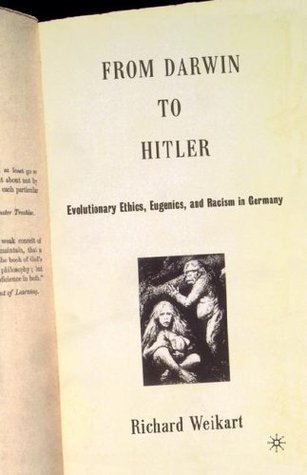This is a very interesting book to read. I have learned a lot I did not previously know, and there are many references I am sure to look up. Without getting into my personal opinions on the subject, I do have a few comments.
Firstly, the author at times sound a little bit 'preachy', as if blaming the Theory of evolution for the change in people in the sense they were more inclined toward science than religion. I do not feel that is a good representation. The overall 'vibe' I get is that Darwin and the Theory of evolution are, at least in part, to blame for the horrors of the Holocaust. Do not blame the science. Blame those who interpret it. Those people who got the idea that a 'superior' race is superior simply for being European, blonde, or of their own culture, are people who did not use an actual scientific explanation for their claims. They twisted a scientific theory to suit their own bias. And that is the least scientific thing you can do. At the worst, all we can blame the Theory of evolution of is giving a way to promote their ideas, as false as they may be, to those who deemed others less worthy of them.
On a final note, I do find it amusing that a lot of those people who were clinging to the idea of a 'superior race', would realistically not fit into it, by their own standards.

